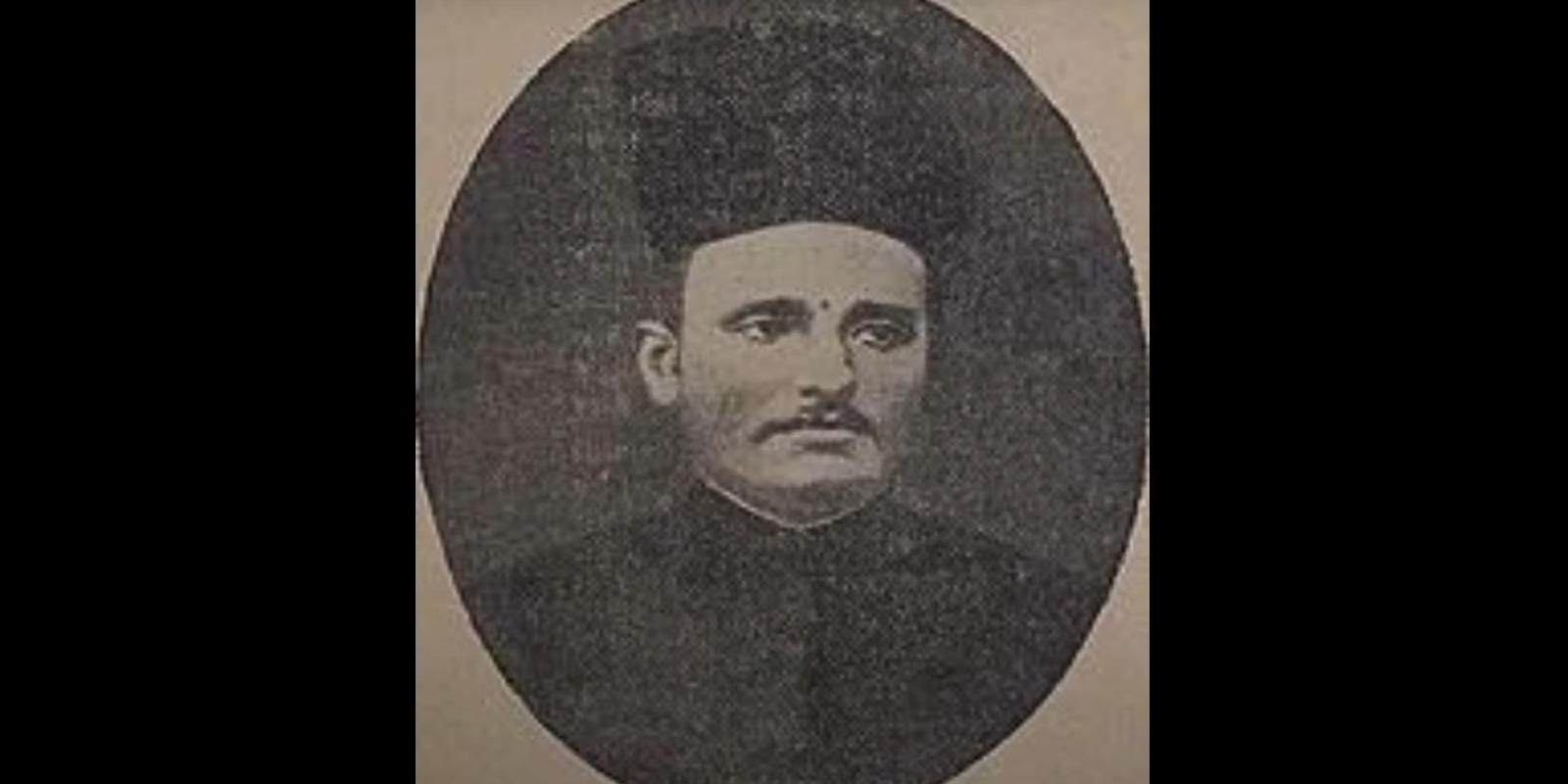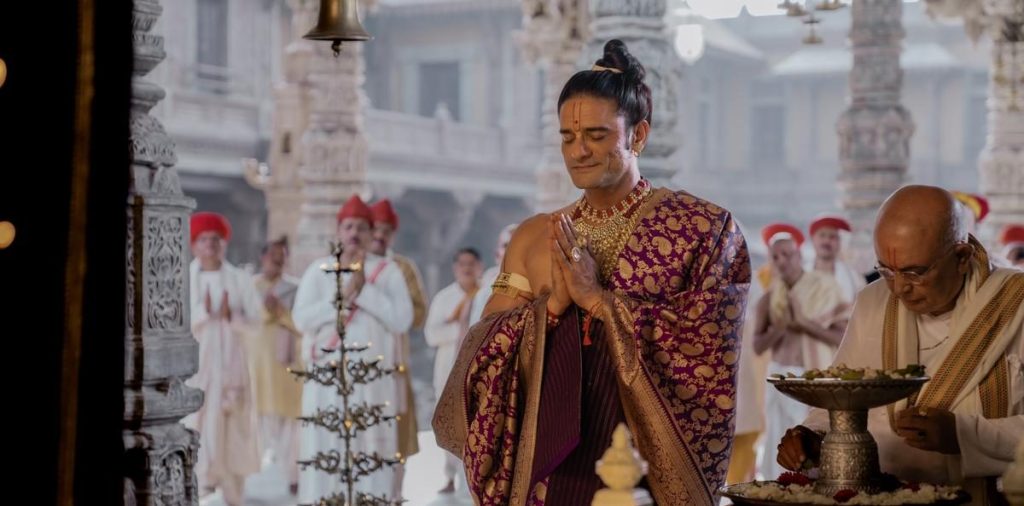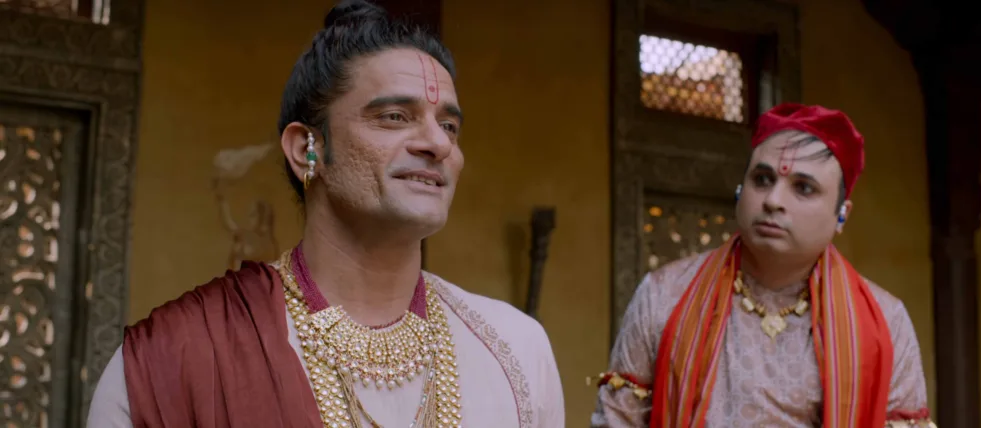The Netflix Indian film ‘Maharaj’ depicts the story of Karsandas Mulji, a journalist and social reformer who unearths the dark practices of sexual favors elicited by the local religious leader, Maharaj Jadunath. After a celebration at the temple, Karsandas is shocked to find his fiance, Kishori, sleeping with Jadunath after the man chooses her to perform service in the name of worship. Determined to expose Jadunath’s messianic popularity, he starts a newspaper company to print the truth behind what goes on in the Haveli religious center. On his quest, Karsandas is confronted by several obstacles that force him to persevere with the task at a considerable cost to his personal life.
Helmed by Siddharth P. Malhotra, the drama explores corruption, sexual predation, and societal repression that lead to people continuing a cycle of generational abuse that enables influential figureheads to exercise their plans without any rebellion. Jadunath is a prime example of a man who leads his flock astray, promising them salvation in the name of divine providence while taking from them what he wants. As the narrative delves into collective responsibility and the monstrous nature of sexual trauma, the origin of both ‘Maharaj’ and its titular antagonist becomes a pertinent topic worthy of determining their basis in reality.
Maharaj Tells a True Story Rooted in a Real-Life Libel Case
‘Maharaj’ is a historical adaption of Saurabh Shah’s 2013 novel of an 1862 Libel case filed by Jadunathjee Brajratanjee Maharaj against Karsandas Mulji based on an article he published in the Satyaprakash newspaper titled ‘Hinduo No Asli Dharam Ane Atyar Na Pakhandi Mato.’ Written by Vipul Mehta and Sneha Desai, the film portrays the animosity between the defendant and accuser – Karsandas and Jadunath – as they battle to establish the reality of social practices bound in the concept of seva. Jadunath targets the former on the grounds of defamatory practices after he writes about the depraved sexual acts committed by the Maharaja with his female devotees.

In reality, Karsandas was a Bombay reformer who hailed from a Pushtimarg family – a Hindu sect – who studied at the Elphinstone College for a while before he was later denounced by his parents for his ideas on widow remarriage. Upon returning, he became a well-respected journalist and forward thinker in Bombay. During his time writing for the Satyaprakash newspaper, which he founded, he attacked the Pushtimarg and Bombay Maharajas, who had been previously accused of engaging in sexual liaisons with their followers in the name of Charan Seva. These allegations were reportedly publicly known since 1855. However, the head priest, Jivanlal, censored any criticism by launching attacks of his own.
In an interview, Director Siddharth P. Malhotra discussed the drive of the protagonist and his fight against injustice. He said, “He used to live in Baikala. He was a social worker. He used to stand up for the things that were right. Things that were considered wrong at that time but are right today. So I said, this is the story of an unsung hero that should be told. This is the whole journey of a hero. And he is fighting for women’s rights, for everything.” The screenplay brings Karsandas’ inquisitive and headstrong nature to the fore, highlighting how steadfast he is in his fight against societal stratification and unfairness.
As the film touched upon several religious topics, it was considered a sensitive and controversial subject matter. After a plea was filed by a Hindu group, the Gujarat High Court temporarily stayed the release of the period drama, fearing it would incite aggression from the Pushtimarg sect. However, these claims were cleared after a review by court officials. The director stated that it was a very challenging period for him to go through as he didn’t know what the verdict would be. “I cried a lot. I literally cried. My father, Prem Kishen, my mother, everyone came home and supported me,” he said.
Jadunath’s Origins in a Real Maharaj
The primary antagonist of ‘Maharaja,’ Jadunath Brijratan, was a real religious leader of the Vaishnavite Pushtimarg sect who filed a libel case against Karsandas in 1862. In the narrative, Jadunath extracts sexual favors from female devotees, including Karsandas’ fiance, Kishori, in the name of tradition and social practices. This becomes a point of contention between him and the protagonist as a fierce battle of wills and reputation takes precedence. The powerful leader uses the influence of religion and God to indulge in acts of depravity that lead to severe consequences for the women and the families involved.

Although Karsandas holds a grudge against Jadunath for his liaison with Kishori, in reality, the reformist journalist was engaged in several attacks against the Bombay maharajas, who collectively were responsible for engaging in sexual acts with their devotees. When Karsandas continued his venture against them, the religious leaders were forced to call for aid from Jadunath, who was a maharaja in Surat. The two had engaged in several public debates and discussions previously. Later, Jadunath was revealed to have engaged in inappropriate behavior with young girls and women, including groping 14-year-olds who sought the spiritual aid of their religious sect leaders.
In retaliation against the journalist’s report ‘Hinduo No Asli Dharam Ane Atyar Na Pakhandi Mato,’ Jadunath was the plaintiff in a libel case against Karsandas. The two would butt heads in court to establish the truth behind the man’s true nature. Talking about the internal thought process of Jadunath, Jaideep Ahlawat, who plays the Pushtimarg leader, said, “This man thinks very differently. He feels everyone is petty in front of him. He has this belief. He doesn’t get angry on petty things. It was challenging because I had to convince myself to understand that man’s thought process and whatever he is doing. I had to believe it and make it convincing for myself first and then make it convincing for the audience.”
Some changes were made in the film’s narrative to accommodate the central themes of sexual abuse. While Jadunath is portrayed accurately, the screenplay also pins all the sexual debauchery of the Bombay maharajas on him, thereby providing a slight dramatization of his deeds, although they were equally heinous. Thus, in a holistic sense, the religious sect leader is represented in a credible manner in ‘Maharaj.’
Read more: Maharaj: Was Charan Seva a Real Practice in 19th Century India?


You must be logged in to post a comment.